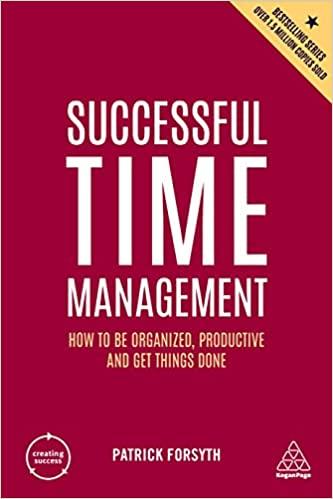Answered step by step
Verified Expert Solution
Question
1 Approved Answer
Ben is a dedicated manager at a prominent multinational company, where he managesteams spread across different countries that ultimately report back to him in California.Ben
Ben is a dedicated manager at a prominent multinational company, where he managesteams spread across different countries that ultimately report back to him in California.Ben finds a great deal of fulfillment in his work, particularly when he has the opportunityto travel and visit his team leads around the world. Ben made it a point to immersehimself in the local culture during his business travels, dedicating an extra day or two tolearn about the culture before heading into his companys office or factory in whateverlocation he was atOn one trip, Ben traveled to Chennai, India, to visit JP a lead manager in the localoperation. Ben asked JP to spend the day with him exploring the area and its traditions,and JP graciously agreed and took Ben on an eyeopening excursion to a nearby villagethat, like many in rural India, was poor. Ben noticed JPs close connections with thevillagers. JP an esteemed member of the Brahmin caste and an elder at the Hindutemple, was highly respected and considered a leader in the community. Ben wasgrateful for the warm welcome extended to him by the villagers and appreciated theeffort JP put into arranging this visit.But Ben also found himself in an uncomfortable spot.JP wanted to take Ben to this particular village not only because he knew the peoplewell, but also because a local Chennai clothing company had recently established abusiness here and he thought Ben would be interested in this new development. Thecompany had adopted a business model that involved renting looms to families in thevillage, which enabled them to produce cloth materials and fulfill orders from thecompany. While the families earned money for the piece work, they also had to pay therent for the looms.As Ben observed the process, he couldnt help but notice children as young as tenworking at the looms. When visiting one family, Ben and JP met with the parents whotold them how this local business was really helping their family. And, as they said that,their two children sat nearby working at the looms.Ben was cut to the core. He had read about the dangers of child labor and in particularabout the way that work on looms can be especially harmful and how children due totheir better eyesight and ability to see subtle distinctions in color are in demand to workon looms These conditions pose significant risks to children, especially in terms of thepotential hazard of diminishing their eyesight and its impact on their overall wellbeing. Itpained him to see these children working while he envisioned his own eight and yearold kids back home the children in Chennai were about the same age engaging insuch laborious, risky tasks. He would never let his own kids do it Then again, hethought, Im not dealing with the circumstances these parents are dealing with.Ben was aware of how JP spoke very positively about the village and the additionalincome the childrens labor provided for the families. It was also clear that the childrensparents didnt object and that the whole village appeared to be on board with thisincomeproducing project.As Bens visit to the village came to an end, some of the villagers, including JP eagerlyasked him to share with them his thoughts on the new business development in thevillage. Did he approve of itWhat should Ben say?Author: Natalia Garcia. Natalia graduated with a major in economics and minor in international business and was a Hackworth Fellow with the Markkula Center for Applied Ethics at Santa Clara UniversityQuestions to answer each response should address the question asked and bringto bear discussions on these matters that were held in class: Please identify what you think are the most significant ethical values at stake inBens decision? It is important to identify these values on all sides of thisdilemma. points How can Ben navigate this delicate conversation, ensuring his response reflectsboth his genuine concern for the wellbeing of the children and his appreciationfor the villagers hopes and aspirations tied to the new business development? points Evaluate the ethical implications of the clothing companys business model in thevillage. Should Ben prioritize the economic benefits it provides to families, orshould he focus on the potential exploitation of child labor and the associatedrisks? Explain why? points Explore the concept of cultural relativism and its relevance in this case. ShouldBen approach the situation with an understanding and acceptance of culturalpractices, or should he advocate for universal ethical standards, such as theprohibition of child labor? Make your case for which standard you would adopt points
Step by Step Solution
There are 3 Steps involved in it
Step: 1

Get Instant Access to Expert-Tailored Solutions
See step-by-step solutions with expert insights and AI powered tools for academic success
Step: 2

Step: 3

Ace Your Homework with AI
Get the answers you need in no time with our AI-driven, step-by-step assistance
Get Started


